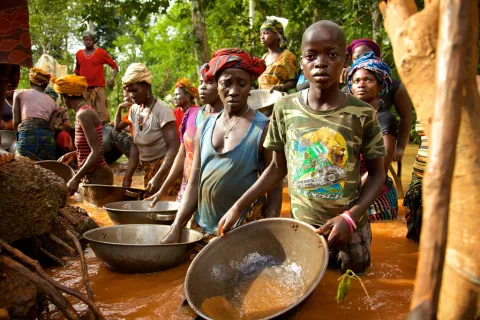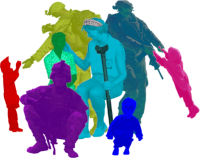
In recent years, the issue of forced labor in mines has gained significant attention, revealing harrowing stories of individuals trapped in a cycle of exploitation. This story follows the journey of a survivor named Amina, who endured unimaginable hardships in a mining operation before ultimately finding her way to freedom.
Amina grew up in a small village in the Democratic Republic of Congo (DRC), an area rich in natural resources but plagued by poverty and conflict. At the age of 16, she was lured into working at a local mine under false promises of fair wages and education. Instead, she found herself subjected to grueling conditions—long hours, inadequate food, and constant threats from overseers. The mine was notorious for its use of child labor and forced labor practices, with workers often coerced into staying through violence or debt bondage.
For two years, Amina worked tirelessly in the mines, extracting minerals like coltan and cobalt that are essential for modern electronics. The work was dangerous; accidents were common due to unsafe practices and lack of protective gear. Amina witnessed fellow workers suffer severe injuries without any medical assistance. The psychological toll was equally devastating; she felt trapped with no hope for escape.
One fateful day, during a particularly brutal shift, Amina overheard plans for an inspection by international human rights organizations. Fearing repercussions from her captors if they were discovered, she decided it was time to flee. With little more than her determination and the clothes on her back, she escaped into the dense jungle surrounding the mine.
Amina’s escape marked the beginning of a perilous journey across multiple countries. She navigated through treacherous terrain while evading capture by those who sought to bring her back. After days of traveling on foot, she reached Uganda where she sought refuge with local NGOs that assist victims of trafficking and forced labor.
In Uganda, Amina received support from organizations dedicated to helping survivors reintegrate into society. They provided her with shelter, food, and counseling services. However, Amina knew that this was only a temporary stop on her path to freedom; she longed for a place where she could rebuild her life without fear.
With assistance from humanitarian groups and legal aid organizations, Amina applied for asylum in Canada—a country known for its commitment to human rights and support for refugees. After several months filled with uncertainty and anxiety about her future, Amina received news that her application had been approved.
Arriving in Canada marked a new chapter in Amina’s life. She was welcomed by a community eager to support refugees like herself. Through various programs aimed at helping newcomers integrate into Canadian society, Amina began learning English and enrolled in vocational training programs.
Today, Amina is not just a survivor; she is an advocate against forced labor practices worldwide. She shares her story at conferences and schools to raise awareness about human trafficking and exploitation in mining industries globally.
Amina’s journey from forced labor in the mines of DRC to safety in Canada exemplifies resilience against overwhelming odds. Her story highlights the importance of international cooperation in combating human trafficking and supporting survivors as they rebuild their lives.
